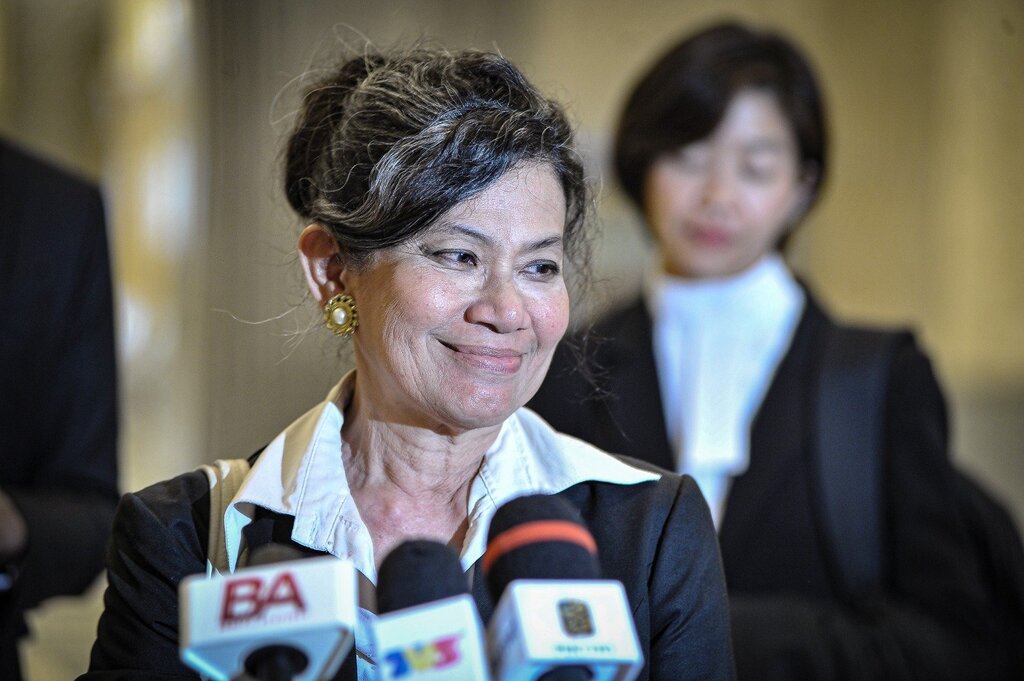KUALA LUMPUR – The challenge by two women against the PAS-led Kelantan government’s competency to enact shariah criminal laws is not at all about legalising or legitimising offences against the precepts of Islam, but about the correct federal or state jurisdiction to legislate offences, legal scholar Professor Emeritus Datuk Shad Saleem Faruqi said.
The constitutional law expert said that under the federal constitution, there is a division of legislative power between the federal Parliament and the state assemblies.
“Neither can trespass on each other’s jurisdiction. If they do, there is the possibility of judicial review.
“A state does not have the legal power to arrest, investigate and try an offence which has been provisioned under the Federal List and assigned to Parliament and the civil authorities.
“As such, the suit by the plaintiffs for the Federal Court to declare 20 provisions under Kelantan Shariah Criminal Code (I) Enactment Code 2019 as null or void, is simply about the state legislative assembly’s powers.
“The problem here is that the (Kelantan) state assembly is violating the federal constitution’s Ninth Schedule. It is not the shariah courts or the shariah authorities that are to be blamed.
“They are simply enforcing the state law. It is the state assembly that is exceeding its powers and conferring powers on shariah courts that the state assembly itself does not possess.

“The shariah court derives its power from the state law, (and) the latter is derived from the federal constitution.
“The power to arrest, investigate and try federal offences, as allocated under the Federal List, is with the police and the Attorney-General’s Chambers.
“So the state assembly and the state shariah authority has never had the power on items in the Federal List or covered by federal law,” Shad Saleem told Scoop.
The case which the Federal Court is to continue hearing tomorrow, has been painted by PAS as an attack on Islam. PAS, which plans to hold a demonstration outside the court in Putrajaya tomorrow, has condemned Nik Elin, a lawyer, for purportedly undermining Islam.
Some lawyers, such as shariah lawyer Datuk Akberdin Abdul Kader, are also concerned. Akberdin told Scoop Nik Elin’s case could possibly trigger similar constitutional challenges in other states, which each have their own shariah criminal enactments.
However, Shad Saleem said Nik Elin’s case, which was granted leave to pursue the challenge in September last year, was not about changing what Islam deems right or wrong.
“The petitioner (Nik Elin) is not saying that what is sinful (in Islam) should be allowed. They are saying, where it should go to trial. The issue is the venue of the trial instead of whether it is wrong or right.
“The courts have the power to decide who has jurisdiction over these matters.
“For example, surely, murder is wrong in Islam. But it does not go to the shariah courts as the federal constitution states that crime in general is (to be tried) in the civil courts.
“This is clear as cited in Item 1 of List II (the State List in the federal constitution) that mandates that the states may punish offences against the precepts of Islam (except in regard to matters included in this paragraph and shall not have jurisdiction) in respect of offences except in so far as conferred by the federal law.”

The significance of the case, Shad Saleem added, is that the apex court’s decision would clarify the separation of powers between the federal and state governments in the matter of Islamic offences.
“It will clarify the widespread misunderstanding that all Islamic matters are in State hands. Actually, much of Islamic criminal law, contract, commercial, banking and tort law is in federal hands.
“This case also holds bigger significance than other similar challenges on the constitutionality of shariah state enactments that have been brought to court previously,” he said.
This is because the provisions challenged in Nik Elin’s case are broader, covering 20 provisions, compared to previous cases on a particular provision.
“The provisions challenged in the current petition cover offences such as making false claims, destroying or defiling a place of worship, sodomy, sexual harassment, sexual intercourse with a corpse. These are already covered by federal law. It is not desirable to have concurrent jurisdiction, with different punishments in different courts,” he said.
Shad Saleem made a distinction between shariah laws on criminal offences and those involving “personal matters”, such as divorce, nafkah (alimony) and faraid (inheritance).
“Over these matters, the state assembly and shariah courts have exclusive power.
“One has to follow the constitution because this law is the supreme law. It gives the state assembly and shariah courts power predominantly over Muslim personal law.
“Personal matters such as not fasting during Ramadan or not performing your Friday prayers – the Penal Code is silent on such offences, so, therefore, the shariah authorities can punish such offences against the precepts of Islam.

“What is not understood here is that Islamic crimes are divided into two parts where most Islamic crimes are given to civil jurisdiction and the remaining percentage to the shariah courts.
“If the Federal Court says that even if an offence is wrong in Islam but if it exists in the Federal List, then the preclusion clause is applied. Even if it is a shariah offence, if the offence is part of the Federal List, then the state cannot create or punish that offence.”
“By enacting provisions that already exist under the Penal Code, the Kelantan legislature can be deemed as attempting to trespass the federal constitution,” Shad Saleem said.
“Of course, the court has the exclusive power to decide this.”
Nik Elin’s petition was heard by a full bench of Federal Court judges led by Chief Justice Tengku Maimun Tuan Mat in August.
According to media reports, the judges had agreed that Nik Elin’s case did not touch on Islamic precepts and was instead about interpretation of the federal constitution. – November 19, 2023


